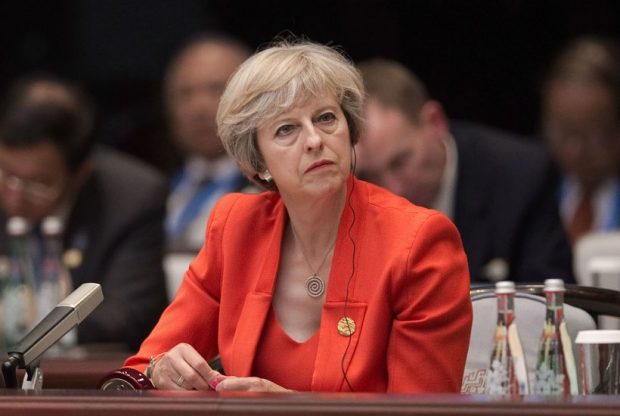In the post-Brexit landscape whose shape was barely glimpsed in G20 discussions at Hangzhou, one thing is clear: soon we’ll have to stop waffling about trade deals and start pushing British products the world wants to buy. One such is education, at our universities, independent schools and English-language colleges — an export sector calculated in 2011 by the now defunct Department for Business, Innovation and Skills to be worth £17.5 billion.
Not only does this sector attract foreign exchange, plug funding gaps for cash-strapped universities and support thousands of jobs, it also lays the ground for future relationships with students who return home to embark on business careers. And as the global population of international students grows by 6 per cent a year, it’s a great ‘soft power’ opportunity to bolster British influence around the world.
George Osborne’s Treasury recognised this and argued that foreign students should still be made welcome. But under the home secretaryship of Theresa May — as part of a wider ‘clampdown’ so ineffective that net migration actually doubled — UK visas granted to non-EU foreign students actually fell by 6 per cent a year, to 187,000 in 2014. Behind this were two much-bandied claims: that many colleges were ‘bogus’, and that up to 90,000 non-EU students a year were outstaying their visas.
A report this June by the campaigning organisation ExEdUK pointed out that of the more than 800 colleges which lost their licences to sponsor international students, many fewer deserved the ‘bogus’ label: lots were ‘legitimate, quality-assured institutions who have found the sponsorship compliance system too complex’. And Destination Education, published this week by the IPPR thinktank, concludes that the 90,000 figure for overstayers is ‘not reliable enough to be used as a guide for policy’: the number here after five years might be less than 40,000.
But in the anti-immigration climate of the Brexit vote, 40,000 is still a big number. Within days of entering Downing Street, Mrs May reiterated her intention to ‘crack down’ on colleges supposedly offering easy entry for economic migrants. Meanwhile, many thousands of talented students choose to study in Australia or the US instead of the UK, to our future economic detriment.
And if our new Prime Minister was hoping to persuade her Hangzhou hosts that Britain still wants to be (in Osborne’s phrase) China’s ‘best partner in the West’, then her dissing of Chinese investors in the Hinkley Point nuclear project is not the least of her embarrassments. According to the commentator Diane Wei Liang, on the Today programme, Mrs May’s tightening of visa rules had already earned her the charming Chinese nickname of ‘Student Killer’.
Eyes on the iron triangle
Also on Today was Japanese ambassador Koji Tsuruoka. Japanese business leaders ‘agree that UK is the best place to do business in Europe’, he said, but ‘if the way Brexit ends up does not provide companies with a prospect of making sufficient profits… of course, all options are open to them’. So Nissan might move its factories elsewhere? asked John Humphrys. The answer was oblique, but the question was bang on.
The UK’s strength in today’s globalised car industry is largely due to Japanese investment that began in the 1980s, driven by thirst for access to Europe and admiration for the business environment created by Margaret Thatcher. There used to be talk of an ‘iron triangle’ of consensual action between Japanese business, officialdom and politicians: even if that system is not as strong as it was, they still think as a pack. If one factory goes, many will go. The key Brexit test has nothing to do with current economic indicators; it will be whether Nissan, Honda and Toyota still make cars here in ten years’ time.
Supine investors
My comments on the unjustifiably rising trend of top executive pay have all emphasised the need for institutional investors to take the lead in correcting ‘a trend that causes such social offence without delivering better performance’. But no wonder those institutions are, with honourable exceptions, so supine: research by FTfm reveals that the chief executives of the world’s top 20 listed asset-management firms received bonuses last year equivalent to 15 times their base salaries, and not because their salaries were small; nor (since they are employees, not partners) because their personal capital was at risk. Top London-based chiefs earned £8 million-plus for sitting on portfolios that rarely outperform the indices. So how could they look askance at FTSE 100 bosses taking home a mere £5.5 million?
Hot dates
Speaking of future relationships, well-meaning friends often urge me to try online dating. But to be honest — and despite tales of wild middle-aged encounters, mostly via the genteel-toned Telegraph dating site — it appeals to me more as a potential investor than as a blind-date bachelor. I’m particularly intrigued by news that Oakley Capital, an Aim-listed private equity firm founded by entrepreneur Peter Dubens, has just sold 40 per cent of a German dating site called Parship for £108 million, having doubled its money in 16 months.
Launched in 2001, Parship was a pioneer in its home market — but our soon-to-be-former European partners still look like online wallflowers compared with the red-blooded Brits, an estimated seven million of whom are dating-site habitués. This high-growth market already claims to account for a quarter of all new relationships and looks set to go on growing — even if all those nice Lithuanian ladies decide, after Brexit, that British men are no longer worthy prospects.
But with more than 1,400 UK sites to choose from, new ventures need a distinctive offering, preferably an ‘elite’ one.-Spectator Readers Only has got to be a winner. Let’s crowdfund it.







Comments